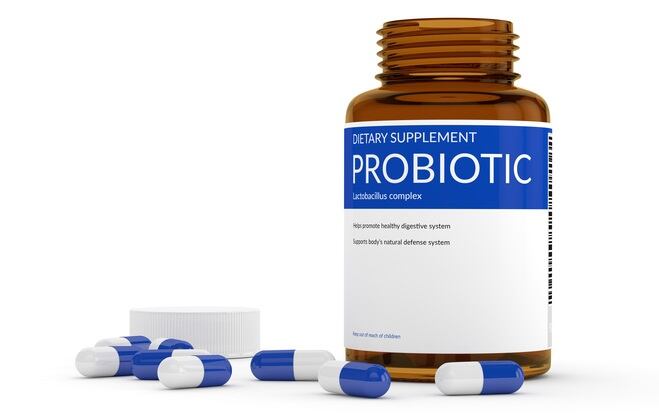There is no EU-wide legal framework defining the food category “probiotics” or harmonised legal framework establishing the conditions for a strain to be considered as probiotic in EU member states. But the general view by both European and National authorities is that the term “probiotic” is an implicit, non-authorised health claim therefore the very use of the name is not authorised in most countries.
However, last week, AESAN published a food safety update acknowledging the significant presence of probiotics on the Spanish market and stating that a the lack of harmony between countries may go against the Mutual Recognition Principle, by which products legally manufactured or sold in one Member State should not be prevented from entering the market of all other EU members.
The decision, published in Spanish, is translated as stating: "From the discussions that have been held within the European Commission's group of experts on nutritional and health claims, it is found that there are different interpretations by MSEs regarding the use of the term “probiotic”, which, in turn, implies a non-harmonized situation in the European Union market. In this sense, infant formula and follow-on formula are marketed which, as a voluntary added ingredient, contain different live microorganisms.
“The presence of these live microorganisms is indicated on the product label in the ingredient list. In the field of food supplements, it has been found that there are a large number of food supplements on the market, which include the term 'probiotic/s'.
“These products come from different countries of the EU, where they are allowed to be marketed under this name and, therefore, they could not be prevented from being marketed in Spain, in application of the 'principle of mutual recognition' established in the Treaty of the European Union. Consequently, taking into account the aforementioned, and until there is a uniform criterion, on the part of the Member States of the European Union, it is considered that it could be accepted that the term 'probiotic/s' appears on the label of the products, both nationally manufactured and from other countries of the European Union.
“In all cases, these products must meet the safety requirement. However, it should be noted that the use of this term cannot be accompanied by any health claim, unless expressly authorised under the European Union Regulation.”
Discussing the news on its website, Sandwalk BioVentures, the Spanish innovation, strategy, regulatory intelligence and management consultancy specialising in microbiome science, describes this milestone as a ‘small victory’ for the microbiome industry.
It states: “A lot remains to be decided around probiotics in Europe, and the decision by AESAN is firm yet provisional “until a uniform criterion is generated” at the EU level. This resolution does also not imply the authorization of any health claim for probiotics in Spain. However, the very capacity to use the term 'probiotic' on product labels is certainly a small victory for the microbiome industry.”
AESAN's statement points out that currently, food supplements containing one or more strains of live microorganisms are being marketed in the European Union. Likewise, infant formula and follow-on formula are marketed which, as a voluntary added ingredient, contain different strains of live microorganisms. In all cases, these products comply with the safety requirement, although to date, none of the microorganisms normally used has been able to demonstrate any beneficial effect in a healthy general population, in accordance with the standards established by the European Authority for Food Safety (EFSA).
On the other hand, and outside the food sector, there are products that are marketed as drugs for the treatment of diarrheal processes and that contain strains of microorganisms.
Strict and confusing market
As well as there being no EU-wide legal framework for use of the term "probiotics", there is also no consistent definition of the necessary amount of bacteria present in a food or supplement to have a beneficial effect. In fact, there are at least three different views on the necessary CFU from different bodies.
Food business operators have to obtain a prior-authorization from the EU Commission to be entitled to communicate on the beneficial effects of their products on the product label or in advertising, ie Health claim approval.
Almost 400 health claim applications with probiotics have been submitted for authorisation. Only one was authorised – an article 13.1 claim on live yoghurt and improved lactose digestion for the microorganisms L. delbrueckii subsp. bulgaricus and Streptococcus thermophilus (minimum 108 CFU/g ).
All other probiotic health claims applications have been either rejected or withdrawn due to the uncertainty of the assessment of EFSA. The most common reason for rejection was the insufficient characterization, but in some cases, application on well-characterized microorganisms were also rejected. As there is no health claim authorized for individual strains (excep. the yoghurt microorganisms), probiotic is considered by the European Commission as a health claim.
However, in recent years different approaches have been developed by EU Member States. The Italian Guidelines on Probiotics and Prebiotics are a comprehensive guideline for probiotics in food, allowing the use of the term “probiotic” if specific conditions are fulfilled.
Italian Ministry of Health: indication for use in food and food supplements of probiotic microorganisms traditionally used for intestinal microflora balance (www.salute.gov.it).
The Czech Republic has issued national guidelines allowing the use of the term “contains probiotics” as a nutrition claim, subject to the fulfilment of the conditions of use for nutrition claims defined in the NHCR.


